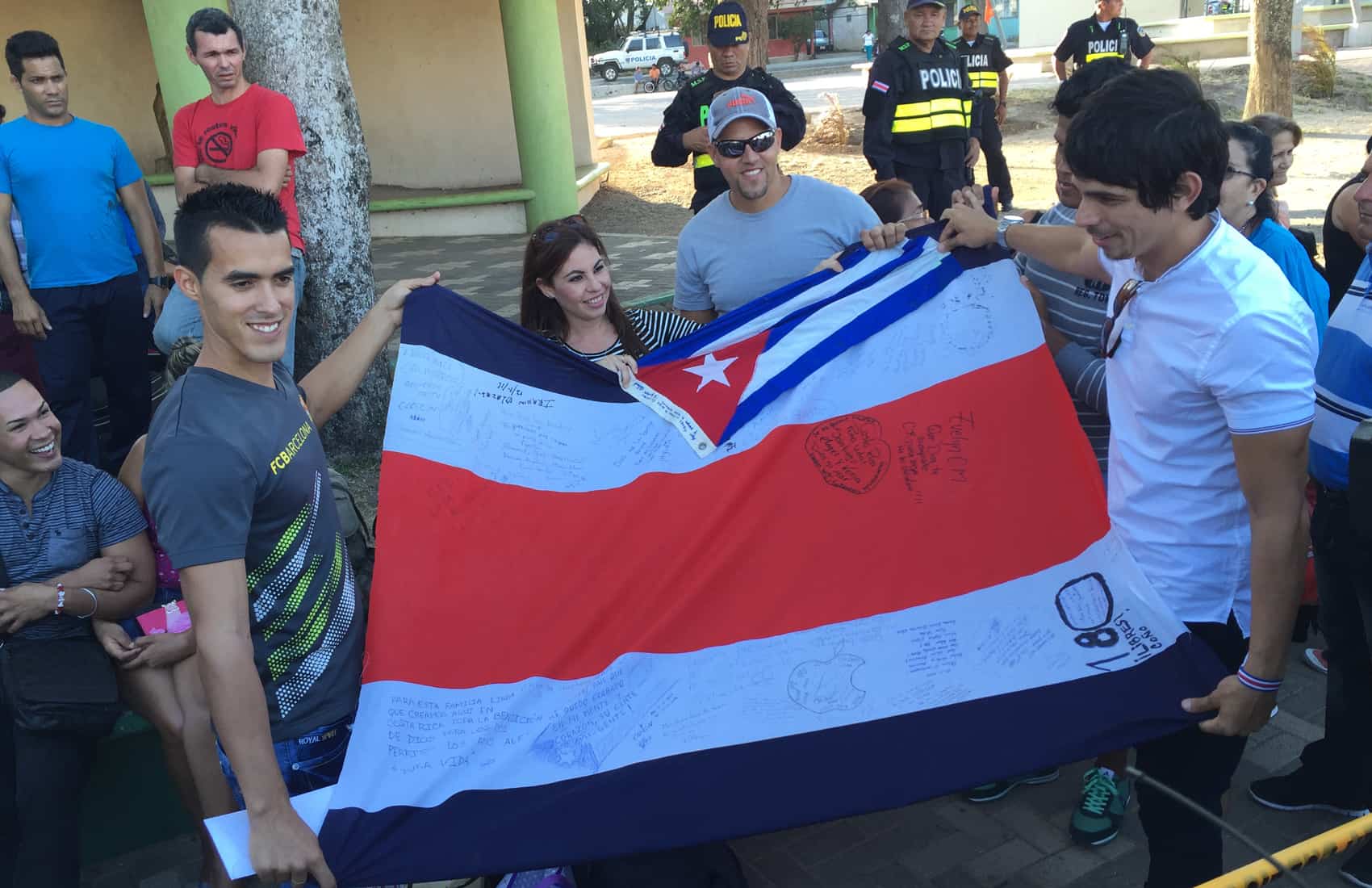Cheers and clapping erupted at a shelter in La Cruz, Guanacaste, as the names of the first Cuban migrants to leave Costa Rica in months crackled out of a megaphone on Tuesday afternoon. That evening, the first group of 180 Cuban migrants flew out Daniel Oduber International Airport in the provincial capital of Liberia en route to El Salvador, Guatemala, Mexico and eventually their final destination, the United States.
This latest wave of Cuban migration has drawn increased attention to the 1966 law that grants Cubans preferential immigration status in the U.S., a benefit that many U.S. representatives are reconsidering.
The pilot program to fly out the roughy 8,000 Cuban migrants that have been stuck in Costa Rica since November 2015 was the first tangible sign that the immigration crisis here had finally abated. If all goes well, the remaining 7,000-plus migrants will start leaving Costa Rica by air from Daniel Oduber and Juan Santamaría international airports, the latter located just outside Costa Rica’s capital, San José.
First 180 #migrants in the Cuban airlift at the airport to leave Costa Rica, via @presidenciacr. @TheTicoTimes pic.twitter.com/lTBOC8iV8G
— Zach Dyer (@zkdyer) January 13, 2016
Interior Vice Minister Carmen Muñoz told reporters that the temporary legal status would protect the Cuban migrants from illegal smugglers after they arrive at the border checkpoint in Tapachula, Mexico. Immigration experts, though, have expressed skepticism that temporary visas would be enough to protect the migrants from organized crime there.
From the border, many Cuban migrants plan to travel north and enter the U.S. through the border crossing in Lardeo, Texas, the hometown of U.S. Rep. Henry Cuellar. Cuellar and U.S. Rep. Kay Granger of Texas visited several shelters in northern Costa Rica earlier this year and met with officials to discuss the crisis and speak with migrants.
#MigrantesCubanos Es una realidad, primeros cubanos ingresan al vuelo directo a El Salvador pic.twitter.com/YRbiTsVV4m
— Casa Presidencial 🇨🇷 (@presidenciacr) January 13, 2016
Rep. Cuellar applauded the Costa Rican government’s humanitarian assistance to the migrants and told The Tico Times that the U.S. should provide support to Costa Rica considering that a U.S. law is the “magnet” drawing Cuban migrants through the region. Cuellar said that as a member of the House Appropriations Committee he and others would work with the State Department to determine the specifics of U.S. assistance regarding the migration crisis.
Beside helping the Costa Rican government grapple with the influx of migrants, the largest in years off the island, Cuellar said that the 1966 Cuban Adjustment Act was the main policy at issue. Cuban migrants are allowed to apply for permanent residency after one year in the U.S. and receive federal benefits.
“No other group of people get automatic federal benefits and I think the Cuban Adjustment Act needs to be reviewed. I think everyone should be treated the same and no one should get preferential treatment, with all due respect to the Cuban people,” he said, “In my opinion it should be eliminated.”
Costa Rica’s foreign minister bids farewell to the Cuban migrants at the airport:
#MigrantesCubanos Canciller @mgonzalezsanz despide a los primeros 180 pasajeros pic.twitter.com/vyLZ3Z4fxK
— Casa Presidencial 🇨🇷 (@presidenciacr) January 13, 2016






